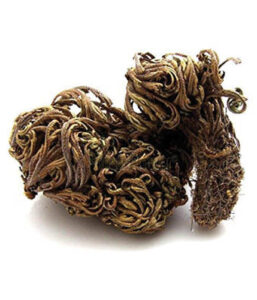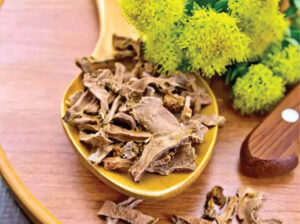 Many patients ask me how they could get more energy for their daily activities. Being a holistic physical therapist, I explain the significance of emotional and mental health adequacy, sleep, scheduling, exercise and nutrition. While many of these interventions help significantly, some patients with autoimmune disorders often still struggle with energy and fatigue. Then there are some who simply want more performance for their daily activities and for sports. Both these groups of patients are willing to try almost any dietary supplement, which could have a helpful or harmful impact. The willingness to try new things is good, but many supplements are not regulated and can interact with drugs or cause severe adverse events.
Many patients ask me how they could get more energy for their daily activities. Being a holistic physical therapist, I explain the significance of emotional and mental health adequacy, sleep, scheduling, exercise and nutrition. While many of these interventions help significantly, some patients with autoimmune disorders often still struggle with energy and fatigue. Then there are some who simply want more performance for their daily activities and for sports. Both these groups of patients are willing to try almost any dietary supplement, which could have a helpful or harmful impact. The willingness to try new things is good, but many supplements are not regulated and can interact with drugs or cause severe adverse events.
Being a strong proponent of holistic medicine, I’m always looking for natural ways to meet the challenges faced by medical science. Thus, I’ve always endeavoured to find ways to improve health and wellness for my clients. I’ve always been fascinated by the disciplines of Ayurveda and Yoga, more so as a citizen of India, the birthplace of these, which explores wonder herbs.
Sadly, there hasn’t been much research into establishing scientific proofs through clinical trials of the benefits of various herbs, elements, and combinations mentioned in Ayurveda. Colonial past aside, the Indian government is now promoting traditional medicines backed by thorough scientific research. The PM of India had mentioned the benefit of a wonder-plant – ‘Solo’, found in the Ladakh region of Jammu and Kashmir.
In the high and hostile peaks of the Himalayas where sustaining life is a challenge in itself, Indian scientists say they have found this ‘wonder herb’, which can regulate the immune system, help adapt to the mountain environment and, above all, protect from radioactivity. ‘Rhodiola’ – a herb found in the cold and highland climate, has led India’s leading scientists to wonder if it is the end to the quest for ‘Sanjeevani’ – the mythical herb that renewed the life of Ram’s brother, Lakshman, in the epic, Ramayana.
Locally called ‘Solo’ in Ladakh, the qualities of Rhodiola were largely unknown so far. The leafy parts of the plant were used as vegetable by locals. However, research by the Leh-based Defence Institute of High-Altitude Research (DIHAR) is exploring the therapeutic values of the herb that shows it can do wonders for the troops posted in difficult high-altitude areas like the 5,400m high Siachen glacier.
 Solo is also known as arctic root or golden root, and its scientific name is Rhodiola rosea. It is in the Crassulaceae family of plants, known for stonecrop and other similar flowering succulents. These plants commonly grow in northern territories like the Arctic circle and northern Asia. As such, cultures including Scandinavian and Chinese, have been using this plant for many years to address stress and fatigue in the harsh environments. Traditional Chinese medicine practitioners call it ‘Hong Jing Tian’, commonly labeled as an ‘adaptogen’, which is a term for a plant, herb, or mushroom that can help your body with stress, anxiety and fatigue.
Solo is also known as arctic root or golden root, and its scientific name is Rhodiola rosea. It is in the Crassulaceae family of plants, known for stonecrop and other similar flowering succulents. These plants commonly grow in northern territories like the Arctic circle and northern Asia. As such, cultures including Scandinavian and Chinese, have been using this plant for many years to address stress and fatigue in the harsh environments. Traditional Chinese medicine practitioners call it ‘Hong Jing Tian’, commonly labeled as an ‘adaptogen’, which is a term for a plant, herb, or mushroom that can help your body with stress, anxiety and fatigue.
While the flowering plant is found across the globe, it’s interesting to note that it’s been used by our Indian soldiers at high altitudes. As per locals, ‘Solo’ always delivers promising results. The various benefits of Solo, established by few but quality research studies, include Reduction of Stress; Enhanced Physical and Mental Performance; Helps cure Depression and Anxiety; Improves appetite; Improves the Immune System; Radiation-protecting abilities due to the presence of secondary metabolites and Phyto active compounds, unique to the plant
These benefits have been known for long. Ladakh’s traditional medicine practitioners, called ‘Amchi’, have been using ‘Solo’ to increase oxygen-carrying capacity of lungs and to cure lung diseases, for centuries now. It is also a known fact that the potency and effects of the same group of plants varies across regions, based on soil, climate and other conditions. A good example could be the THC (psychoactive component) levels in Cannabis which varies significantly across the regions. Given the fact that Indian soldiers and locals vouch for the miraculous benefits of the plant, it is now on the Indian government to give attention to research on the herb and its benefits. After all, Indian mythology does talk about the magical herb – Sanjeevani. History has often proven mythology to be true!
- Move Bawa Move!! - 15 March2025
- The Healing Power Of ‘Shinrin-Yoku’ (Forest Bathing) - 28 December2024
- The Incomparable Health Benefits Of Plant-Based Diet - 30 November2024
